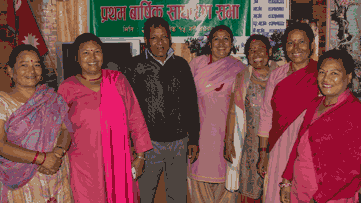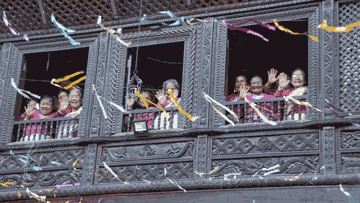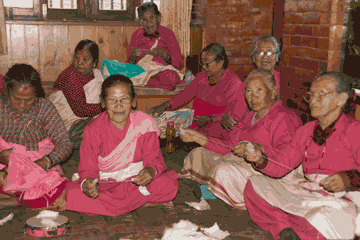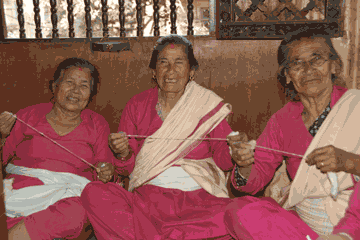|
Care for Seniors |
|
|
|
|
|
Back to overview: |
|
Justification and concept |
|
Since 2008, “Nepalhilfe Kirtipur” has focused on supporting the education of disadvantaged children from very poor and needy families in the Kirtipur community. The unique concept of the various scholarship programs followed the vision of concentrating sustainable support on a limited, selected group of children. In view of the unexpected success of the scholarship programs, the quality of the training and the fact that almost 90% of the former scholarship holders will complete their studies in the foreseeable future, the sponsor has now decided that Nepalhilfe Kirtipur will increasingly look after disadvantaged senior citizens in Kirtipur. The average age of Nepal is 25 years and the aging index increased rapidly from 23.3 in 2011 to 36.7 in 2021. These indicators show that aging is progressing and the care burden may increase rapidly in the coming days due to the trend to the migration of the young generation to other countries. Since Nepal is one of the poorest countries in the world, the available resources are far from sufficient to ensure comprehensive social security. Widows over 60 and over 70 receive 500 rupees (about five US dollars) a month from the state. It is estimated that about three-quarters of those eligible have applied for the benefit, which represents about 7% of per capita income. There is no statutory health insurance; State clinics provide limited free care, including medication, to the elderly and vulnerable, among others. The sponsor has observed over the past 20 years that senior citizens are generally held in high esteem in Nepalese society. Families, friends and neighbors (e.g. the "Amaa Samua mothers' groups") are often very committed to the needs of socially disadvantaged older citizens. After Nepalhilfe Kirtipur has already targeted needy seniors in its various aid projects (nutrition programs, etc.). The aim of this new program is to intensify this support. The duration of the program is not fixed, but is based on one-year extensions, which are only decided at the beginning of a new year (AD), depending on the budgetary situation. |
|
|
 |
 |
|
The volunteers helping the seniors |
Seniors' meeting in the old temple house |
 |
 |
|
Social Gathering . . . . . |
. . . .when making wicks for oil lamps |
|
2. Contribution to daily nutrition The subsidy is intended exclusively for a needs-based supplement to the daily diet (all necessary foods). The daily lump sum for all 70 participants is Rs 2,000, resulting in an annual funding amount of Rs 7 lakh 30,000. (approx. 5,500 euros/year, approx. 22 cents/person and day!!) 3. Contribution to hygiene costs The program includes an annual contribution towards hygiene costs totaling Rs 2,500/person 4. Basic medical support To ensure basic medical care or G-care, the program provides a flat rate of around 960 euros, 1 lakh, 20,000 rupees. Basic medical care is provided on a voluntary basis by qualified nurses or other qualified medical experts on a case-by-case basis.
|
|
|
|
|
To the top |
|
Concept 'Help for women' |
|
|